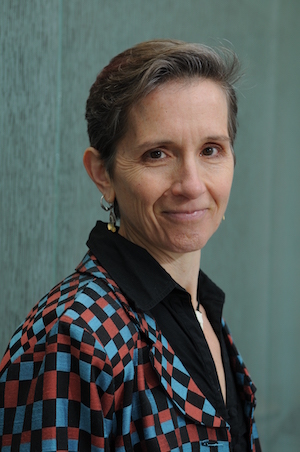
Susan Crate. Photo by Creative Services.
George Mason University anthropology professor Susan A. Crate was among the more than 100 authors from 30 countries from the Intergovernmental Panel on Climate Change (IPCC) who produced the report “The Ocean and Cryosphere in a Changing Climate.” Released on Sept. 25 at an IPCC gathering in Monaco, the reports assesses the impacts of climate change on ocean, coastal, polar and mountain ecosystems, as well as the consequences for the human communities that depend on them and options for adaptation and climate resilient development.
“This is a way to engage scientists and what they have discovered about global climate change to a highly vetted peer-review process and to understand that’s happening with global climate change,” said Crate, who teaches in Mason’s Department of Environmental Science and Policy within the College of Science.
The thawing of the Earth’s cryosphere regions are problematic on several levels, the report notes, The cryosphere includes the Earth’s frozen components, including snow, glaciers, ice sheets, ice shelves and sea ice, ice on lakes and rivers, and permafrost and seasonally frozen ground.
The increased temperature has led to melting ice, which has resulted in noticeably higher sea levels that pose a serious to the several billion human beings who live at or near coastal communities and could be forced to relocate. Permafrost, which is ground that remains frozen for long periods of time, is high in methane, the greenhouse gas that has contributed greatly to global warming.
The report, which continues to help transform public discussions about climate change, comes as world leaders gather in New York at the U.N. General Assembly and the U.N. Secretary-General’s Climate Summit. The report is also expected to provide scientific inputs for the upcoming Santiago Climate Change Conference later this year.
Crate, whose contributions to the report included working with adversely affected communities in Northeast Siberia, said that it was imperative that scientists present the threats posed by climate change in a way that ordinary people could understand.
“People have to know how climate change will affect their own life,” she said. An environmental and cognitive anthropologist, Crate has been working with indigenous communities in Siberia since 1988. Her recent research has focused on understanding local perceptions and adaptations of Viliui Sakha communities in the face of unprecedented climate change.
Although oceans have traditionally absorbed harmful carbon dioxide gases, Crate said, the critical rise in the volume of carbon dioxide gas has made the ocean more acidic, bleaching coral reef systems and damaging shellfish populations as a result.
This is the third report generated by IPCC, which was created in 1988 by the World Meteorological Organization and the United Nations Environment Programme to provide governments at all levels with scientific information that they can use to develop climate policies.
